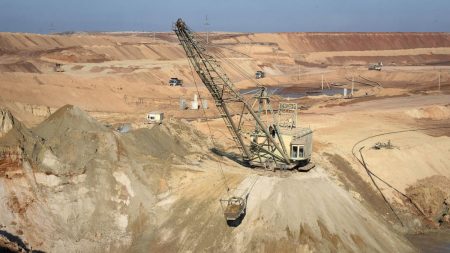The European Union’s Common Agricultural Policy (CAP), a €387 billion program representing a third of the EU budget, is poised for reform as ministers embark on discussions for the 2028-2034 budget cycle. The prevailing sentiment among policymakers is one of evolution rather than revolution, prioritizing a farmer-centric approach that maintains existing subsidy levels while streamlining bureaucratic processes. This approach comes despite longstanding criticism that the CAP disproportionately favors large landowners and contributes to environmental problems. Farmers’ protests across Europe against potential subsidy cuts appear to have resonated, influencing the direction of the upcoming reforms.
The core objectives outlined by ministers for the revised CAP encompass bolstering farmers’ competitiveness within the food supply chain, simplifying administrative procedures, and ensuring a stable income for the agricultural community. New Agriculture Commissioner Christophe Hansen emphasized a balanced approach that minimizes regulatory burdens while incentivizing the sector. Direct payments, a cornerstone of the current CAP, are expected to remain a key mechanism for supporting farmers’ incomes. The overarching aim of the reform process, as articulated by Hansen, is to reduce bureaucratic red tape, a concern frequently voiced by farmers who prefer to focus on production rather than paperwork.
While the current reform discussions focus on high-level principles, the concrete legislative proposal from the Commission is expected only by 2026, after EU leaders finalize the next long-term budget. This timeline leaves room for potentially difficult negotiations, particularly concerning the allocation of funds and the implications of EU enlargement, including the potential accession of agriculturally significant countries like Ukraine. The distribution of funds will likely be a contentious point, considering the need to balance the interests of existing member states with the demands of new entrants.
A key challenge identified by ministers and Commissioner Hansen is the declining appeal of farming as a career, reflected in the aging agricultural workforce. With only 12% of EU farmers under 40 and an average age of 57, generational renewal is crucial for the sector’s long-term viability. Attracting younger generations to agriculture requires addressing issues such as income stability, access to land, and the social perception of farming as a profession. Reforms aimed at simplifying administrative burdens and fostering innovation could also contribute to making farming more attractive to younger entrants.
Underlying the discussions is a growing concern for food security and sovereignty within the EU. Commissioner Hansen emphasized the need to avoid overdependence on external food sources, particularly in light of geopolitical uncertainties. This sentiment reflects a broader shift towards prioritizing domestic food production and reducing reliance on imports, a trend amplified by recent global events that have disrupted supply chains. Maintaining a robust and vibrant agricultural sector is seen as essential for ensuring the EU’s ability to feed its population and maintain its strategic autonomy in the face of potential disruptions.
The upcoming CAP reform represents a delicate balancing act. On one hand, it aims to address longstanding criticisms regarding the program’s efficiency and environmental impact. On the other hand, it seeks to maintain political stability by reassuring farmers that their livelihoods will be protected. The discussions reflect a recognition that the agricultural sector plays a vital role in the EU’s economy, society, and geopolitical standing. Finding a balance between supporting farmers, promoting sustainable agricultural practices, and ensuring food security will be a defining challenge for the EU in the coming years. The success of the CAP reform will depend on the ability of policymakers to navigate these competing priorities and forge a path towards a more resilient and sustainable agricultural sector.










